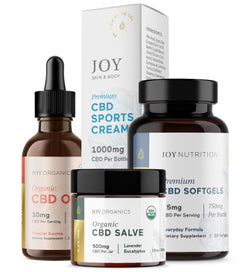
The wonders of Cannabis sativa are no more a fairy tale. The legends about this incredible plant, especially its marijuana and hemp species, appear to be true. Mainstream culture and medical research now realizes the true potential of cannabinoids found in this plant. And with increasing news exposure for marijuana, the debate has been focused on two essential cannabinoids: cannabidiol (CBD) and tetrahydrocannabinol (THC). Here, we will discuss the key characteristics of Delta 8 THC, but we will also share the insights on drug testing concerned with it. Drug testing is a key theme in any discussion orchestrated around the cannabis plant, and Delta 8 THC is no exception.
What Is Delta 8 THC?
There are many hundred cannabinoids found in the Cannabis sativa plant. Because Delta 8 THC is not found in significant quantities naturally, its concentrated forms are typically manufactured from CBD. By nature, Delta 8 THC is psychoactive and also contains many potential benefits.
Factors of Fame for Delta 8 THC
Delta 8 THC produces feelings of euphoria, relaxation, and mild intoxication. But hang on a minute…isn’t this what THC does too? Then what makes Delta 8 THC the new craze? Well, the actual reason why people are falling in love with Delta 8 THC is that while this substance offers the same set of benefits that THC does, it doesn’t create an intense high, (in all users) something that is associated with “regular” THC. And for those who are not a big fan of THC, Delta 8 THC is gold dust! They can use this cannabinoid to manage everyday stress, without becoming intoxicatingly high.
How Much Delta 8 THC Is OK for You?
From what is known about this cannabinoid so far, it probably takes a lot to “overdose” on it, given that it usually creates a very mild high compared to compounds like THC. However, the Food and Drug Administration (FDA) has not evaluated Delta 8 THC products nor approved any of these products. Hence, figuring out a perfect serving size is almost impossible, as with other cannabinoids found in the cannabis plant. However, one can also follow the golden rule of thumb here, which is to start with a low amount and see how your body reacts to it. You can always amp up the serving size if there is a green signal.
Will Delta 8 THC Show Up on a Drug Test?
This is the big question. The short answer to this query is, unfortunately, affirmative. Yes, Delta 8 THC can show up on a drug test. According to the National Drug Court Institute, it is advisable to refrain from using Delta 8 THC if one is going to get tested for drugs soon, or if you’re concerned about random drug testing. There are different tests available for detecting this cannabinoid, which we will discuss in the lines to follow. Please note that each of these tests is designed to detect cannabinoids. So don’t freak out if CBD shows up on it as well! Some drug tests, especially the instant ones, cannot distinguish between different cannabinoids.
How Long Is Delta 8 THC Detectable Through Drug Testing?
The period during which Delta 8 THC is detectable is believed to be the same as THC. However, different drug tests can detect this cannabinoid after different periods. Other factors influencing the detection time include the frequency of Delta 8 THC usage and the consumer’s metabolism. We will discuss four tests for detecting Delta 8 THC in the following lines. These tests are commonly used for detecting cannabis.
Urine Test
For detecting Delta 8 THC, this is the most common method. The urine test can detect the presence of cannabinoids up to thirty days post-consumption. However, the detection period may vary with the intensity of usage. For example, according to a review study, a single use of cannabis can be detectable for three days. But the number increases if we talk about moderate consumption (5-7 days), longterm consumption (10-15 days) and multiple consumptions per day (30 days). These are just estimates, so always play it safe.
Blood Test
The story is the same when we talk about blood tests. Cannabis use is detected within 2-12 hours after consumption via a blood test. However, if someone is using cannabis multiple times a day in a longterm manner, then it can be detected for as long as thirty days. This also is just an estimate, so always play it safe.
Saliva Test
Published data suggests that people who smoke cannabis regularly have THC in their saliva three days after consuming the cannabinoid. However, the convention is that a saliva test can detect THC and structurally related compounds up to 24 hours after it has been consumed. Again, just an estimate.
Hair Test
Not a lot of people out there have faith in hair follicle tests. But let us tell you something: they work too. Once you smoke cannabis or consume any cannabis-derived product, the cannabinoids are absorbed in your blood vessels. Then, they reach the hair follicles through these vessels. If you were to perform a hair follicle test for THC detection, it could detect the psychoactive compound for up to 90 days after consumption, sometimes even longer.
How Long Does Delta 8 THC Stay in Your System?
The answer to this question is important in our bid to understand Delta 8 THC’s appearance on drug tests. When a drug test is performed, the idea isn’t to detect the target compound. Rather, the focus is on detecting the metabolites of that compound. The metabolites—molecules produced after a substance is broken down—give a clue about a specific substance’s presence in our body. Now you can understand why long term users can test positive for a drug, even after a long time. It is because they have more drug-specific metabolites, which will take longer to be excreted.
Which Factors Affect Delta 8 THC’s Stay in Your System?
Given the similarities between the two Delta variants, one can safely assume that almost the same factors influence their stay in the human body. Perhaps, the most important of these factors is how frequently you use Delta 8 THC. If larger amounts are consumed, eliminating it will take longer. Also, some individuals have a greater natural tendency to eliminate this cannabinoid from the body. And, of course, the method of consumption is also something that matters a lot. The cannabinoid will persist for a longer period in your body if you consume it through edibles or tinctures instead of smoking it.
Is it Possible to Metabolize Delta 8 THC Faster?
Many online forums make big claims about helping you pass a Delta 8 THC drug test after consumption. However, none of these programs have been reviewed by the FDA, which raises a serious question about their credibility. You will likely come across herbal detox supplements offered by these programs, which aren’t even third-party lab tested for quality and purity. Hence, rather than relying on such supplements, contacting a healthcare professional and discussing such issues in detail is best.
Frequently Asked Questions
Let us answer some of the most frequently asked questions about Delta 8 THC.
What Is the Difference between Delta 8 And Delta 9?
While the two cannabinoids are similar in terms of the effect they produce, there is a difference in their chemical structure. Delta 8 THC is synthetically made and less potent than Delta 9 THC.
How Does Delta 8 Affect the Body?
Delta 8 THC can produce feelings of euphoria, relaxation, and visual distortions.
How Long Before I Feel Delta 8 THC in My System?
The answer to this question depends predominantly on your method of consumption. If you are vaping Delta 8 THC, then you will feel the effects of this cannabinoid in your body immediately. On the other hand, if you rely on products like Delta 8 THC edibles, kick-in time can be between 30 minutes to two hours.
What Is the Legal Status of Delta 8 THC?
Delta 8 THC has a complicated legal status. There is no mention of Delta 8 THC in the 2018 U.S. Farm Bill, which technically puts this cannabinoid in a legal gray zone. However, there are many states which specifically restrict synthetic cannabinoids. Hence, in those states, Delta 8 THC would still be deemed illegal.
Final Thoughts
Because it is not found in a cannabis plant in the same quantities as the other cannabinoids—for example, CBD and THC—Delta 8 THC is synthesized chemically. This less potent form of THC can appear on a regular drug test. Hence, even as amazing as its properties are, avoiding this cannabinoid is in your best interest if testing for drugs is a valid concern. With that friendly advice, we will bid you farewell from this space!
Hannah Smith is Joy Organics Director of Communications. She is driven by her passion for providing clear and accessible wellness and CBD education. In 2015, she received her BA in Media, Culture and the Arts from The King’s College in New York City and before Joy Organics, worked as writer and photographer in the Middle East and North Africa. Her work has been featured on Forbes, Vice, Vox, Denver Post, and the Coloradoan.







